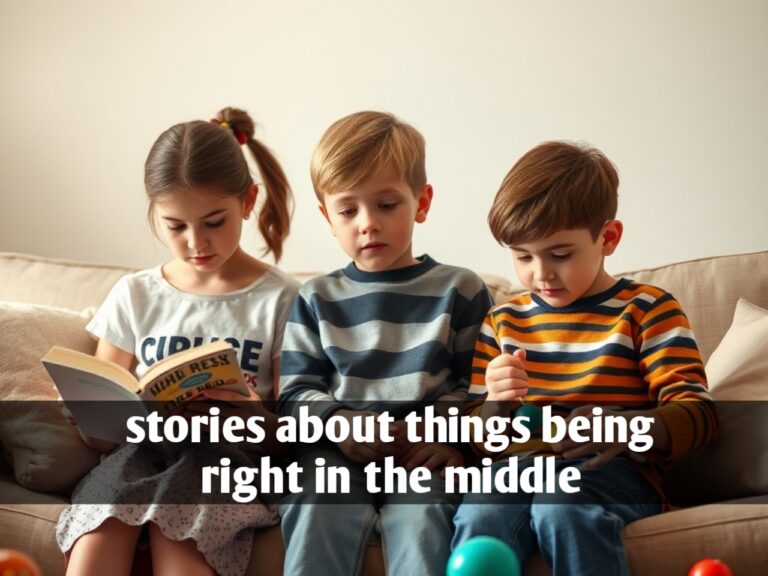10 Simple Ways to Show You Appreciate It in Everyday Conversations
In a world that often feels fast-paced and transactional, taking a moment to express appreciation can have a powerful impact on our relationships and well-being. Whether in personal or professional settings, showing gratitude nurtures a sense of connection and positivity. But expressing appreciation effectively requires more than just saying “thank you.” Knowing how to convey your gratitude in ways that feel genuine and personal can elevate your interactions and strengthen your relationships. This article will explore 10 simple ways to show you appreciate it in everyday conversations, helping you build a habit of appreciation that resonates with others.
1. Verbal Acknowledgment: Say “Thank You” and Mean It
The most direct way to show appreciation is to simply say “thank you.” While it may sound basic, the power of a heartfelt verbal acknowledgment cannot be overstated. However, not all expressions of thanks carry the same weight. It’s important to infuse sincerity into your words so that the other person truly feels your gratitude.
For instance, instead of a quick, automated “thanks,” you can take the time to explain why you appreciate the gesture or effort. You might say, “Thank you for going out of your way to help me with this project. It really made a difference.” This small adjustment transforms a routine phrase into a meaningful exchange.
In addition, paying attention to tone, body language, and eye contact can amplify the impact of your words. When someone feels seen and valued, even a brief “thank you” can leave a lasting impression.
2. Personalize Your Appreciation to the Individual
Appreciating someone in a way that is meaningful to them requires understanding their preferences and communication style. Some people respond best to verbal affirmations, while others might appreciate acts of service or thoughtful gestures.
For example, if you know that your friend values quality time, you could show appreciation by spending time with them over a coffee, acknowledging how much you enjoy their company. In a work setting, a colleague might appreciate a public acknowledgment during a meeting or a personal note expressing your gratitude.
Tailoring your expressions of appreciation to match the preferences of the other person can deepen the emotional connection and ensure that your gratitude is genuinely felt.
3. Express Appreciation in Writing
A handwritten note or a thoughtful email can sometimes communicate appreciation more effectively than a verbal acknowledgment. Written expressions of gratitude allow for reflection and permanence, offering the recipient a tangible reminder of your appreciation.
For example, sending a thank-you note after receiving a gift, or writing an email to acknowledge someone’s effort on a work project, can be impactful. In personal relationships, leaving a surprise note for a friend, partner, or family member can brighten their day. The effort that goes into writing shows intentionality and thoughtfulness, making the gesture even more meaningful.
Additionally, written messages allow for deeper reflection. You can express why the person’s actions or words mattered to you, going beyond a simple “thank you” to explain the impact of their kindness.
4. Use Active Listening as a Form of Appreciation
One of the most underrated ways to show appreciation is through active listening. In a world filled with distractions, giving someone your full attention during a conversation is a rare gift. Active listening involves more than just hearing words; it means understanding, engaging, and responding thoughtfully.
When someone is speaking, resist the urge to interrupt or shift the conversation to your own experiences. Instead, make eye contact, nod in acknowledgment, and ask follow-up questions that show you value what they’re saying. For instance, if a friend is sharing a personal challenge, you could say, “I really appreciate you trusting me with this. How are you feeling about it now?”
This approach makes the other person feel heard and respected, reinforcing your appreciation for their thoughts and feelings.
5. Give Specific Praise
While general praise is nice, specific praise holds more weight and demonstrates that you are paying attention. Instead of saying, “You’re great,” try to zero in on what exactly you appreciate about the person. For instance, “I really admire how you handled that difficult situation with patience and empathy.”
Specificity shows that you recognize their unique strengths and contributions. This is especially powerful in the workplace, where acknowledging a coworker’s exact efforts—such as praising their creative solution to a problem or recognizing their leadership—can boost morale and strengthen team bonds.
Being specific with your praise also helps avoid the generic or superficial feeling that can sometimes accompany vague compliments. It shows that your appreciation is thoughtful and genuine.
6. Offer to Help or Reciprocate
Sometimes, the best way to show you appreciate someone’s efforts is to offer help in return. If a friend goes out of their way to assist you, offering to help them with something is a great way to reciprocate the kindness.
For instance, if a coworker helps you meet a deadline, you can say, “I really appreciate your support. Let me know if there’s anything I can do to help you with your projects.” In personal relationships, offering assistance—whether it’s helping with errands, lending an ear, or cooking a meal—can show that you value the other person’s efforts and are willing to support them in return.
This type of gesture reinforces the reciprocal nature of relationships and emphasizes that appreciation isn’t just about words but also about actions.
7. Celebrate Their Accomplishments
An often-overlooked way to express appreciation is by celebrating the accomplishments of others. Whether it’s a small personal victory or a major professional milestone, acknowledging and celebrating someone’s success shows that you value and respect their achievements.
This can be as simple as giving a shout-out during a meeting, sending a congratulatory text, or organizing a small celebration. By taking the time to recognize their hard work, you demonstrate that you not only appreciate what they’ve done but also support their journey.
Celebrating accomplishments reinforces the idea that you are invested in the other person’s success, deepening your connection and fostering a positive environment.
8. Practice Empathy and Understanding
Empathy plays a crucial role in expressing appreciation. Understanding the challenges and emotions of others allows you to offer more meaningful and thoughtful gestures of gratitude. If someone is going through a difficult time and still makes an effort to help or support you, acknowledging their situation and expressing appreciation with empathy can have a profound impact.
For example, you might say, “I know you’ve been dealing with a lot lately, and I really appreciate you taking the time to help me. It means so much to me.” Recognizing the extra effort someone puts in despite their circumstances makes your appreciation feel genuine and considerate.
Empathy strengthens relationships by showing that you see and understand what the other person is going through, and your appreciation is not taken lightly.
9. Public Recognition
While private expressions of appreciation are important, public recognition can amplify the impact of your gratitude. In professional settings, acknowledging someone’s contributions in front of their peers can boost their confidence and morale. This could be in the form of a shout-out during a team meeting or a mention in a company newsletter.
In personal relationships, publicly praising a friend or loved one—whether in a group setting or even on social media—can show them how much you appreciate their efforts and contributions. However, it’s important to ensure that the person is comfortable with public recognition, as some individuals may prefer private acknowledgment.
Public recognition sends a message not only to the person you are appreciating but also to others, creating a culture of gratitude and positivity in your environment.
10. Follow Up with Continued Appreciation
One-time appreciation is nice, but ongoing acknowledgment creates lasting relationships. After someone has done something you appreciate, following up later to check in or express continued gratitude reinforces your sincerity.
For instance, if a colleague helped you complete a project, you might follow up a week later and say, “I just wanted to let you know again how much I appreciate your help with that project. It’s made a big difference.” This kind of sustained appreciation shows that you’re not just expressing gratitude out of obligation but because you truly value their efforts.
Building a habit of continuous appreciation ensures that your relationships are based on mutual respect and ongoing support, creating a deeper connection over time.
Conclusion
Appreciation is a powerful tool in building stronger relationships, whether personal or professional. By practicing these 10 simple ways to show you appreciate it in everyday conversations, you can create a culture of gratitude around you. From verbal acknowledgments to specific praise, active listening, and empathy, expressing appreciation in meaningful ways helps others feel valued and respected.
Incorporating these strategies into your daily interactions may seem small, but over time, they will foster trust, deepen connections, and make your relationships more rewarding. Ultimately, showing appreciation isn’t just about words—it’s about actions, empathy, and creating lasting bonds based on genuine gratitude.
Read Also Our This Post: W5233 Moonlight Way, Elk: Inside the Largest Home Sale in the Area

Kamran Khatri is a versatile writer and editor at ExpressZone.co.uk, bringing fresh perspectives and insightful commentary across a wide range of topics. With a passion for exploring diverse subjects—from technology, business, and finance to lifestyle, travel, and the arts—Kamran aims to inform, inspire, and engage readers through well-researched articles and thought-provoking content.
His work spans multiple categories including health, education, pets, entertainment, real estate, and sustainability, reflecting his commitment to delivering knowledge that connects with everyday life. Whether breaking down the latest trends, sharing practical tips, or highlighting cultural insights, Kamran’s writing combines clarity with creativity.
When he’s not crafting stories for ExpressZone.co.uk, Kamran enjoys keeping up with global developments, exploring innovative ideas, and connecting with readers who share his curiosity about the world.







